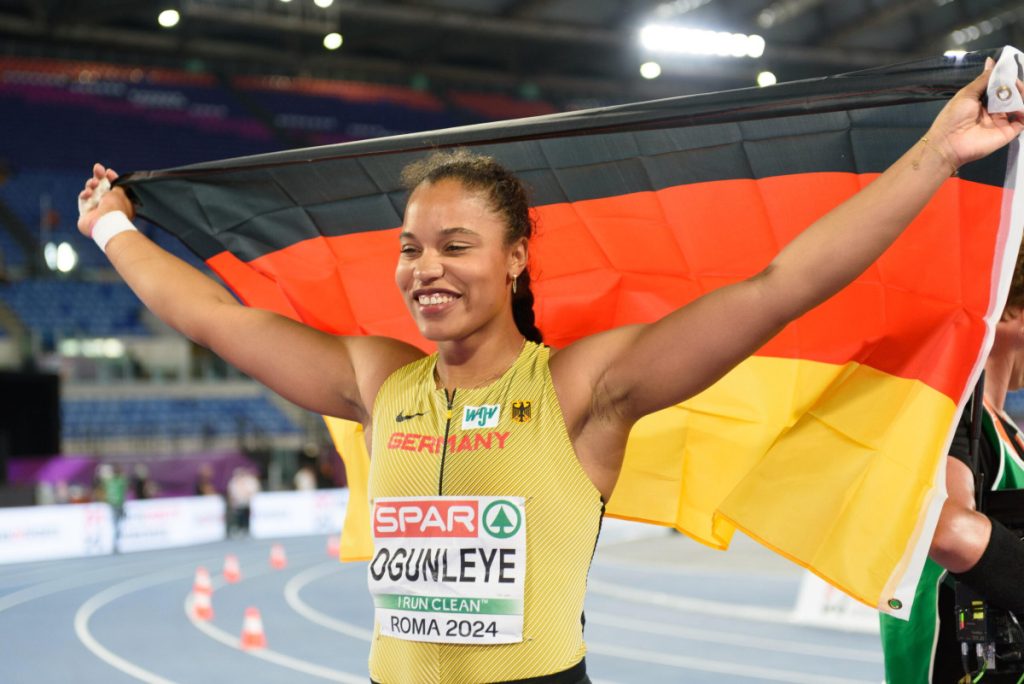Brain Drain and Human Resource Crisis: Africa’s Talent Migration and Its Impact on Sports Performance
The brain and muscle drain phenomenon continues to plague Africa. With Negligence and identity crises playing a significant role. This issue is particularly evident in the sports sector. For a study case, Numerous talented athletes of African descent, especially from Nigeria and abroad opted to represent other countries. The recent Paris 2024 Olympics spotlighted this trend, with several Nigerian-born athletes winning medals—but not for Nigeria.

The most glaring example is Annette Echikunwoke. Born in Ohio to Nigerian parents, Echikunwoke had hoped to represent Nigeria at the Tokyo 2020 Olympics. However, due to what can only be described as negligence or irresponsibility on the part of the Athletics Federation of Nigeria (AFN), she was ruled ineligible just days before the competition. The AFN had the funds to facilitate her qualification process but yet failed to ensure her proper registration. Disheartened, Echikunwoke switched allegiance to the United States and went on to win a silver medal in the hammer throw at the Paris 2024 Olympics. This further highlighted the repercussions of poor management in Nigerian sports administration.
Other Nigerian Athletes that Excelled for other countries
Echikunwoke was not alone. Several other athletes of Nigerian descent excelled for other countries at the Paris Games. Yemisi Ogunleye, a shot-putter born to a Nigerian father in Germany. Won gold in her event. Marking Germany’s first women’s shot-put gold in nearly three decades. Similarly, Salwa Eid Naser, born Ebelechukwu Agbapuonwu in Onitsha, Nigeria. She secured a silver medal in the women’s 400m for Bahrain. Naser switched her nationality in 2014 and has since become a dominant figure in track and field.
In football, Samu Omorodion, a new Chelsea striker with Nigerian roots, played a crucial role in Spain’s gold-medal-winning U-23 team. Though still eligible to represent Nigeria, Omorodion’s trajectory suggests a preference for his birth country, Spain. Likewise, Michael Olise, who has a Nigerian father, earned a silver medal with France in the men’s football competition, showcasing his immense talent on the global stage.
Other sports affected
The trend extends beyond track and football. In volleyball, Barthélémy Chinenyeze, a key player in France’s men’s volleyball team, helped secure a gold medal. In basketball, Femi “Bam” Adebayo was instrumental in the United States’ gold medal win. These athletes, while of Nigerian descent, have chosen to compete for other nations, leaving Nigeria’s sports scene devoid of their talents.
Nigeria’s performance at the Paris 2024 Olympics was disheartening, with the country failing to win a single medal. This outcome starkly contrasts with its best-ever Olympic performance in Atlanta 1996, where Nigeria bagged six medals, including gold in men’s football and women’s long jump. The poor performance in Paris underscores the ongoing challenges within Nigeria’s sports administration and highlights the urgent need for reform.
The loss of these athletes to other nations is a symptom of a broader identity crisis. Many of these athletes, born or raised in countries with better sports infrastructure, feel disconnected from their Nigerian roots. The allure of better training facilities, sponsorship opportunities, and the chance to compete on the world stage often outweighs any sense of loyalty to Nigeria, leading to a continued drain of talent from the country.
Approach to Address the Crisis
Addressing this crisis requires a multifaceted approach. Nigeria must invest in its sports infrastructure, ensure proper management and support for its athletes, and foster a sense of national pride that can compete with the opportunities offered by other nations. Only then can Nigeria hope to retain its best talents and restore its status as a formidable force in global sports.
The stories of Echikunwoke, Ogunleye, Naser, and others serve as a wake-up call. If Nigeria does not address the underlying issues driving its athletes to represent other countries, the brain and muscle drain will only continue, leaving the nation bereft of the glory that its talent so richly deserves.
Shop: Arts & Decor